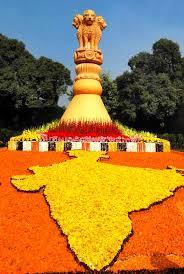 Government has accepted the Finance Commission's recommendations for a substantial hike in share of states in central taxes and asked them to tailor make schemes as per their needs, Prime Minister Narendra Modi said on Tuesday.
Government has accepted the Finance Commission's recommendations for a substantial hike in share of states in central taxes and asked them to tailor make schemes as per their needs, Prime Minister Narendra Modi said on Tuesday.
In a letter to all chief ministers, Modi said the states are free to change Centrally Sponsored Schemes and plan the course of their development.
"The 14th Finance Commission has recommended a record increase of 10 per cent in the devolution of the divisible pool of resources to states. This compares with the marginal increases made by previous Finance Commissions," he wrote.
The states share will now be 42 per cent of the entire kitty as compared to 32 per cent previously.
"The total devolution to states in 2015-16 will be significantly higher than in 2014-15. This naturally leaves far less money with the Central Government," Modi said according to an official statement.
He said that while the Finance Commission was in favour of all state plans being met through the resources being devolved, the Centre will continue to support national priority projects like poverty elimination, Mahatma Gandhi National Rural Employment Guarantee Act, education, health, rural development, agriculture and a few others.
". . .when you (states) are flush with resources, I would like you to have a fresh look at some of the erstwhile schemes and programmes supported by the centre. States are free to continue or change these schemes and programmes as per their discretion and requirement," Modi said.
He added that with this ‘we are moving away from rigid centralised planning, forcing a 'one size fits all' approach on states.
‘States have always been voicing their opposition to this philosophy for years".
Modi said the National Democratic Alliance government has decided to devolve maximum money to states and allowed them the required freedom to plan the course of their development, accepting the long standing concerns and long-felt lacunae in the country's planning process.
Budget 2015: Complete Coverage
The additional 10 per cent of resources being devolved will give you this freedom.
"This is all towards the fulfilment of my promise of co-operative federalism. We have decided to involve states in discussing and planning national priorities. . . This is our strategy to take the country to a faster and yet inclusive growth trajectory through co-operative federalism which is real and true federalism," Modi said, while drawing reference to formation of NITI Aayog.
Strong states are the foundation of a strong India, he said, adding that the Centre is committed to the idea of empowering them in all possible ways.
"We also believe that states should be allowed to chalk out their programmes and schemes with greater financial strength and autonomy, while observing financial prudence and discipline.
"We are clear that without this, local development needs cannot be met and marginalised communities and backward regions cannot be brought into the mainstream," he said.
As per the suggestions of the Commission, headed by former RBI governor Y V Reddy, less money would remain in the hands of the Central Government.
"However, we have taken the recommendations of the 14th Finance Commission in a positive spirit as they strengthen your hand in designing and implementing schemes as per your priorities and needs," Modi said.
The Prime Minister also sought co-operation and involvement of states in defining key challenges.
"I expect that every state will come up with a plan for its key priorities and deploy resources for this purpose.
"We should also adopt a rigorous system of evaluation of schemes and projects.
"I will work with you in this effort. Together, we have to establish benchmarks in terms of quality of works and their speedy execution," he wrote.










